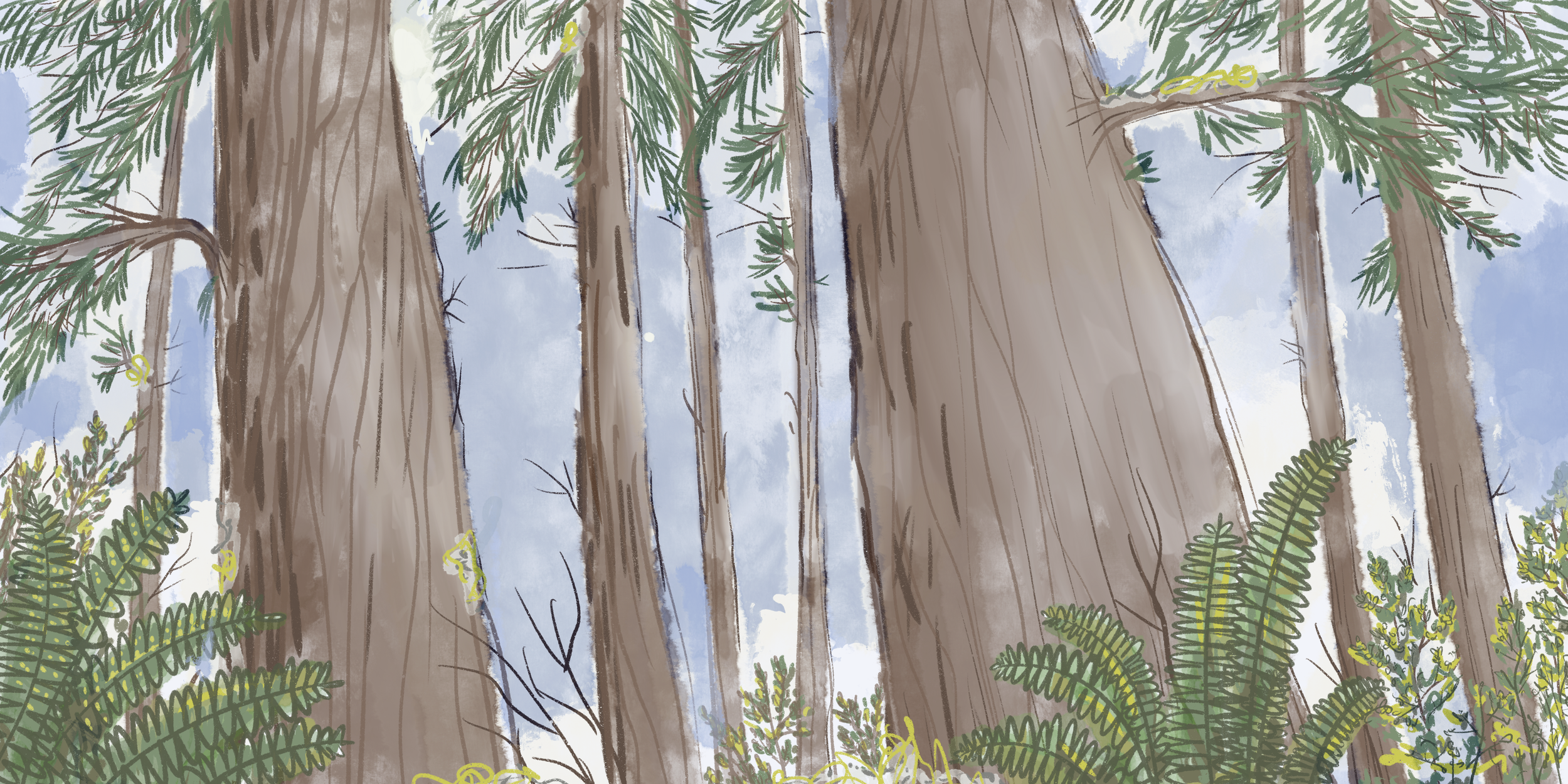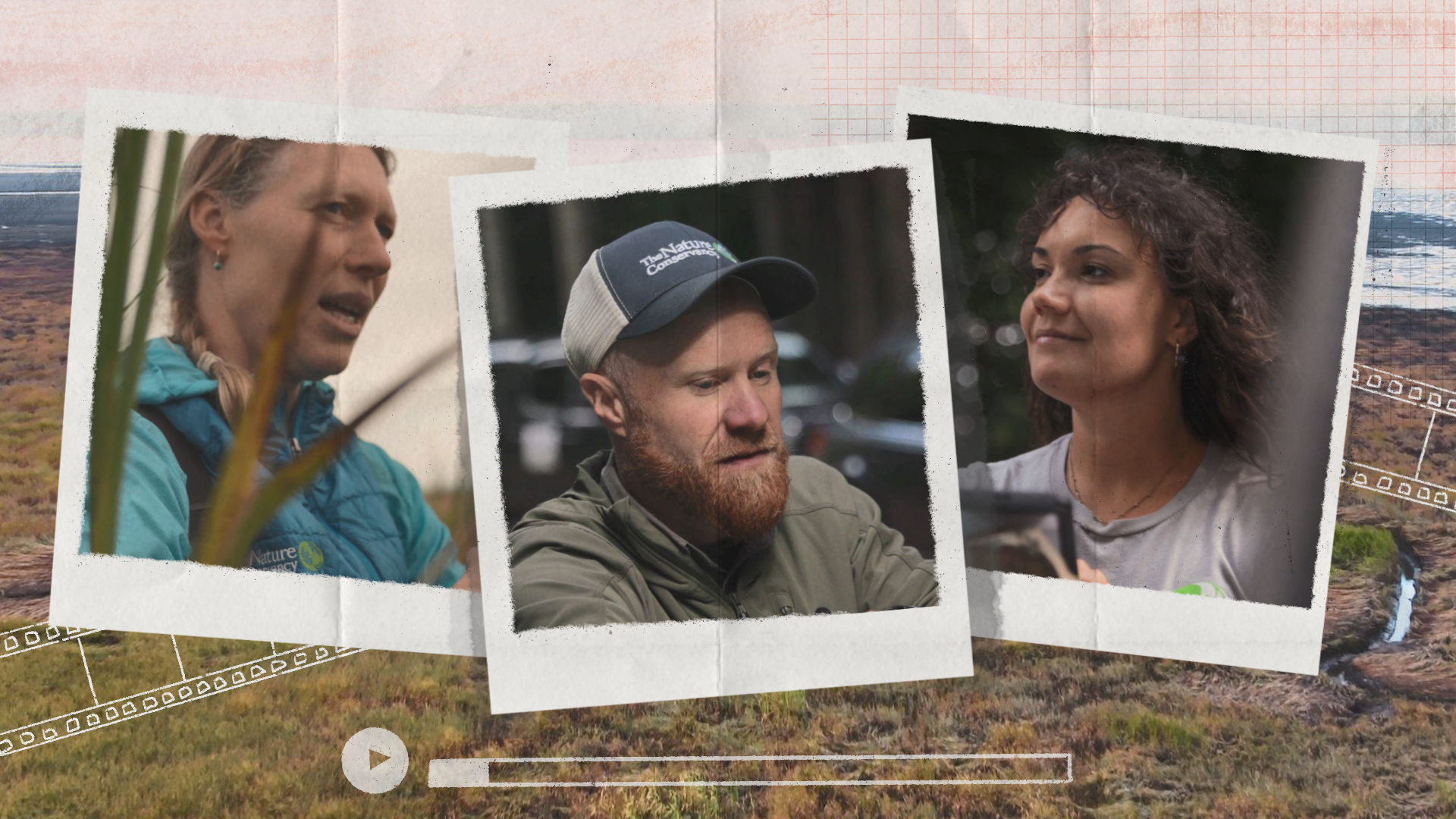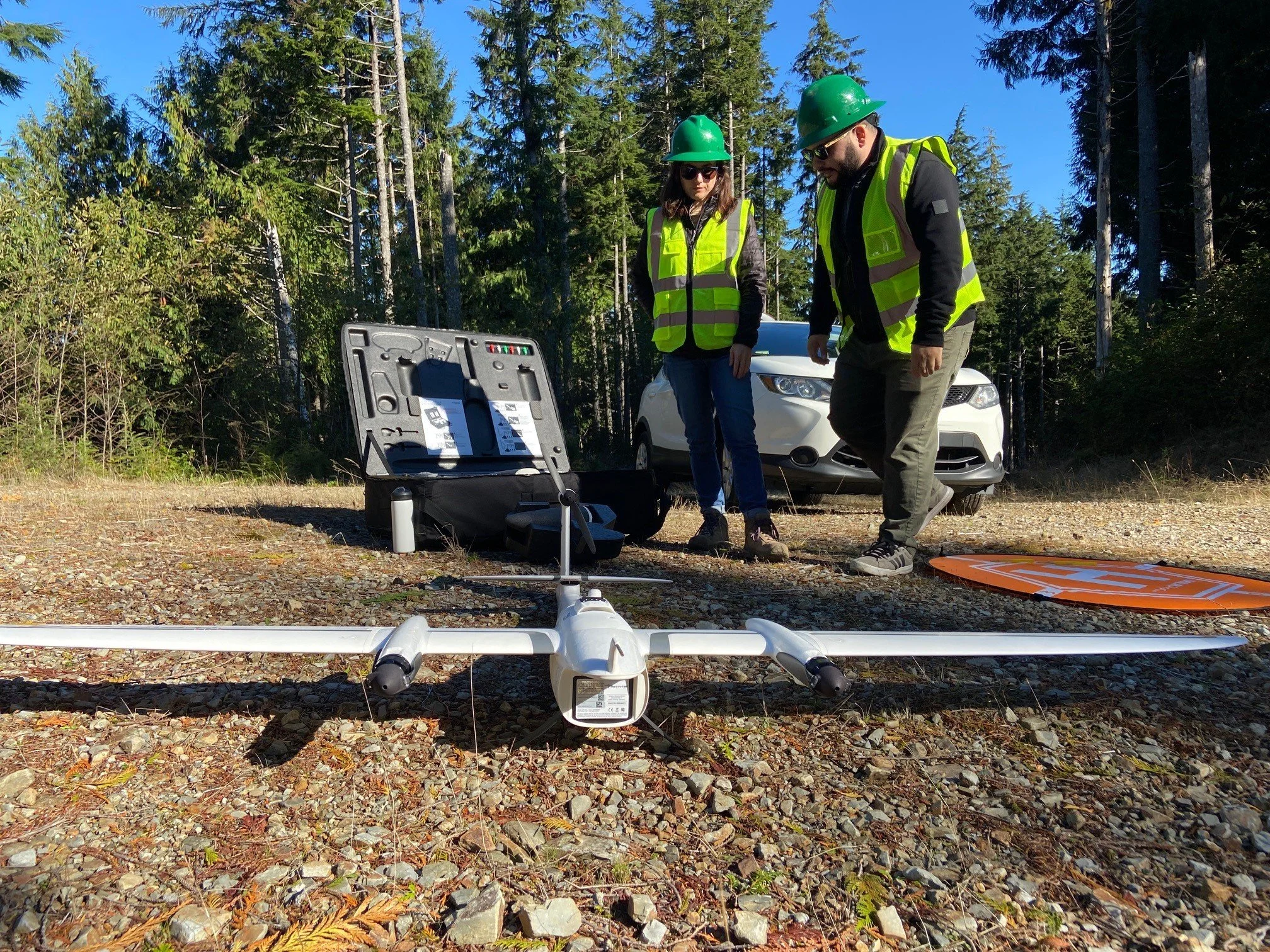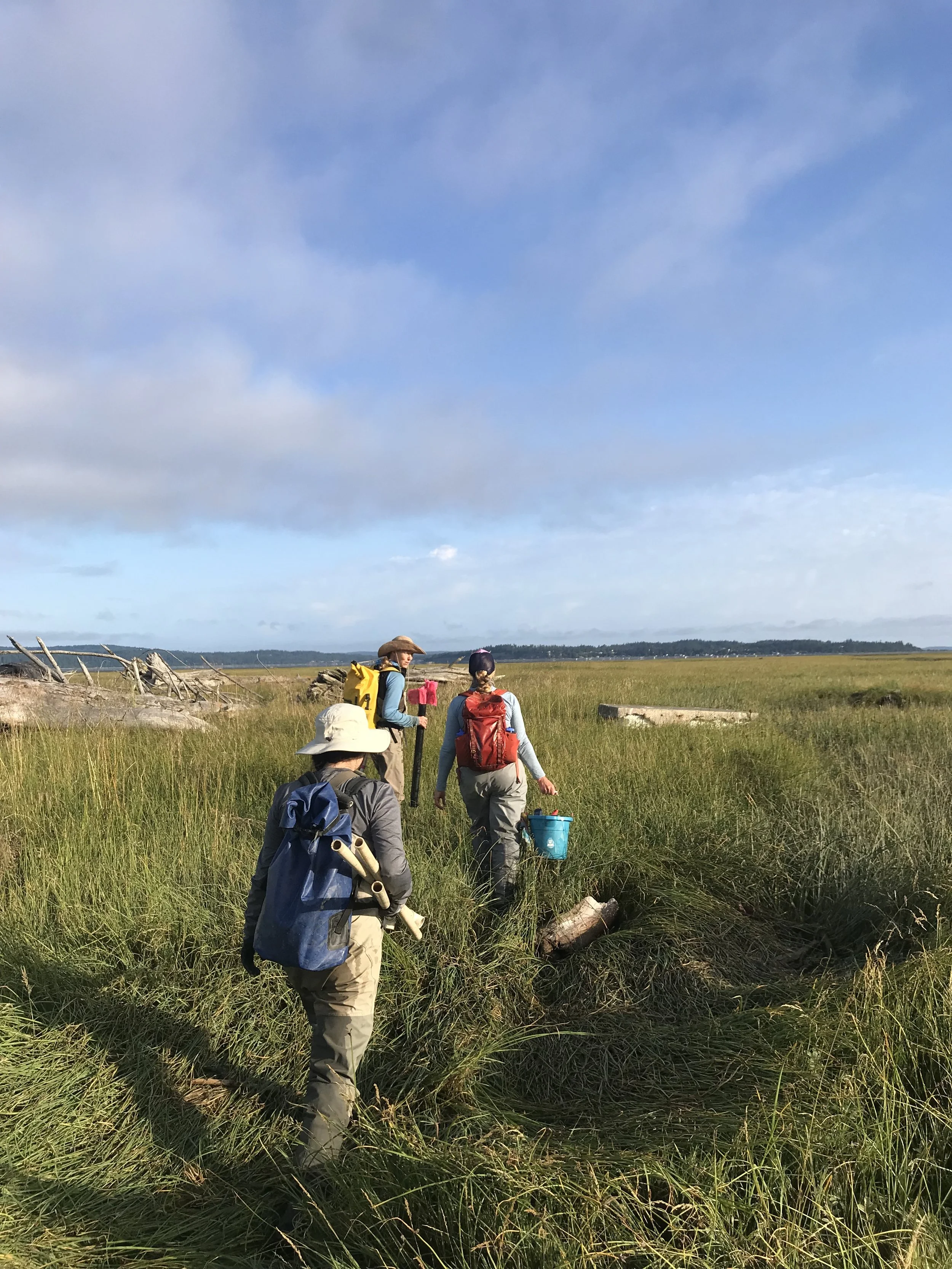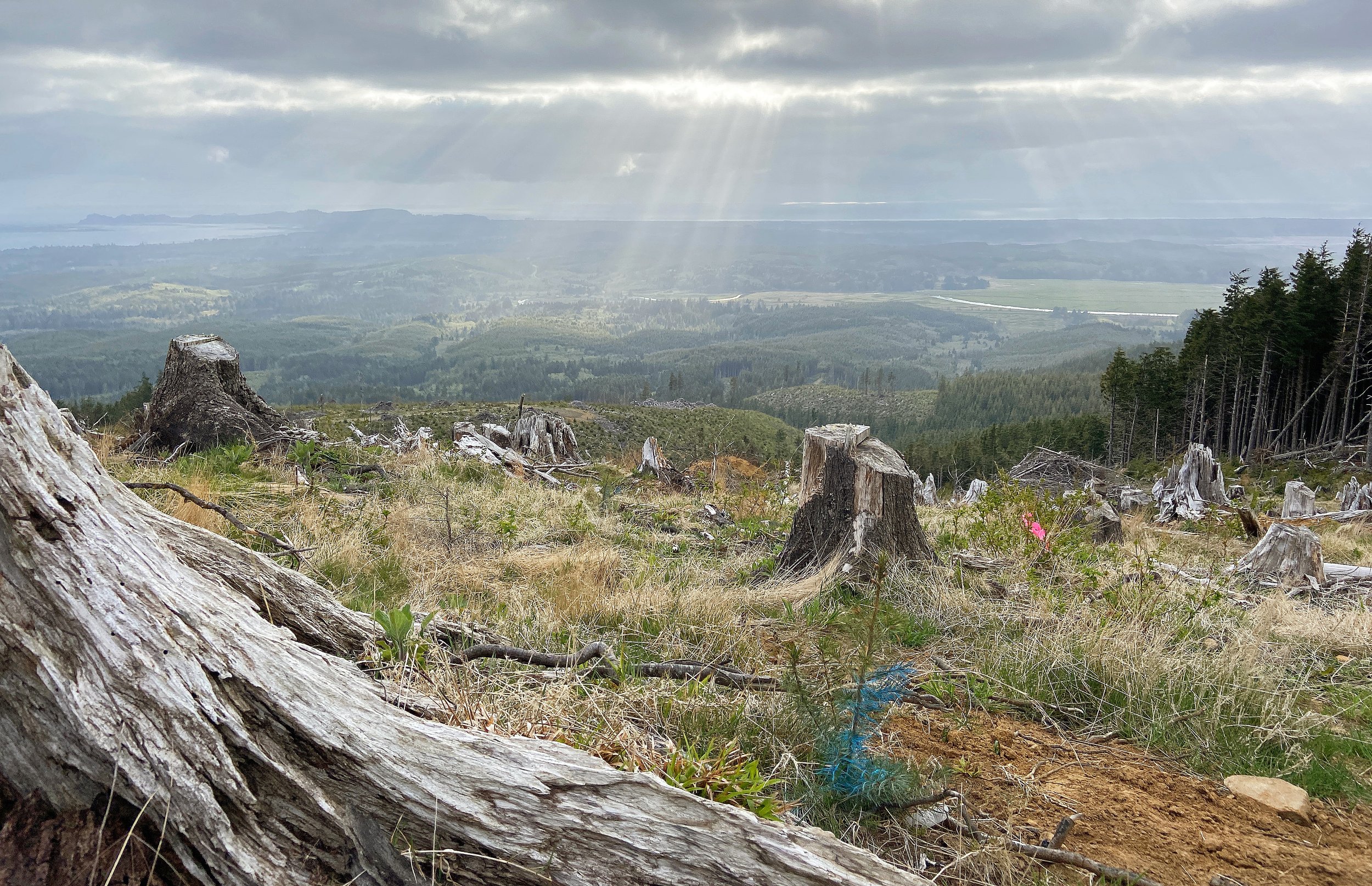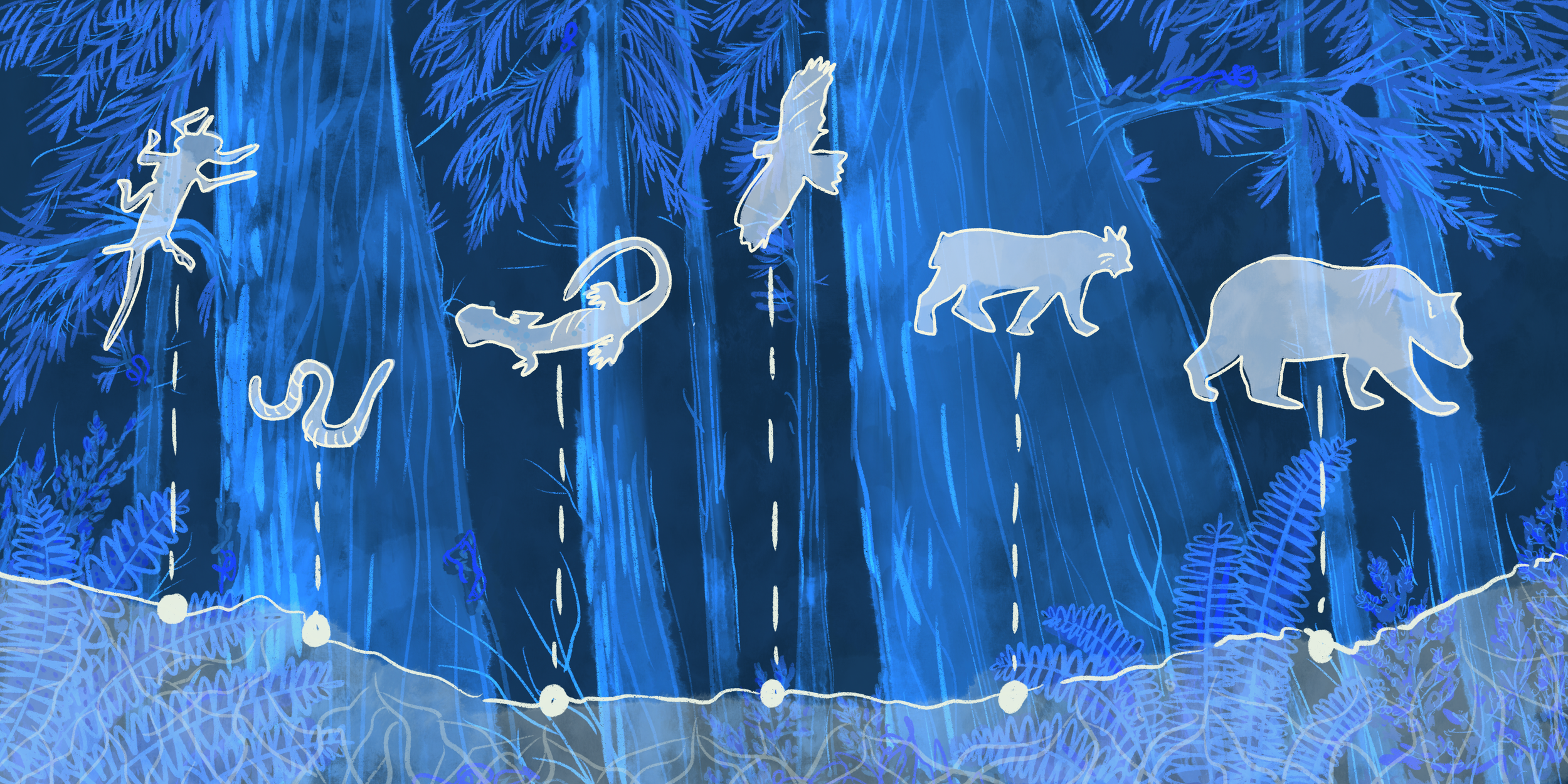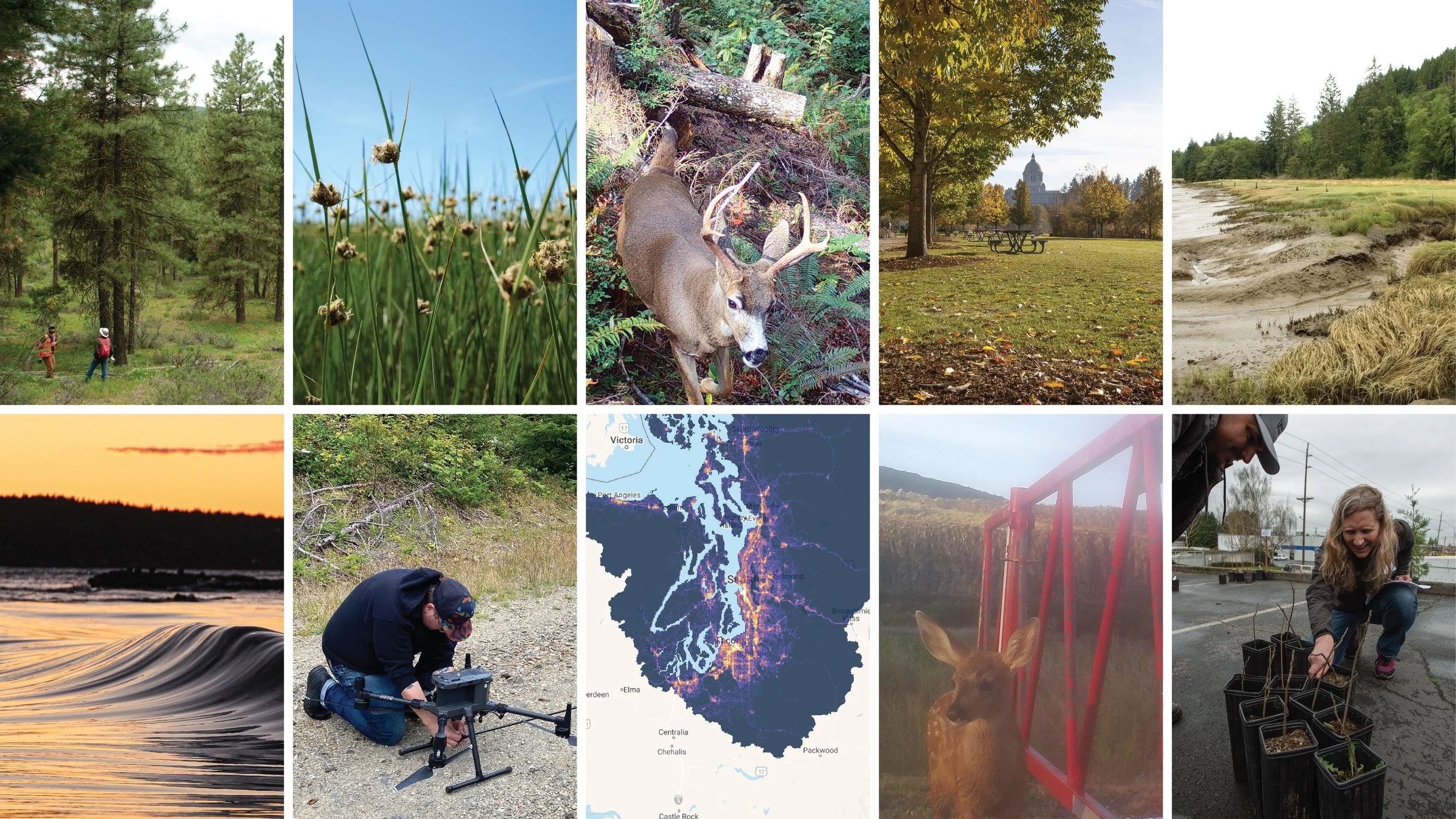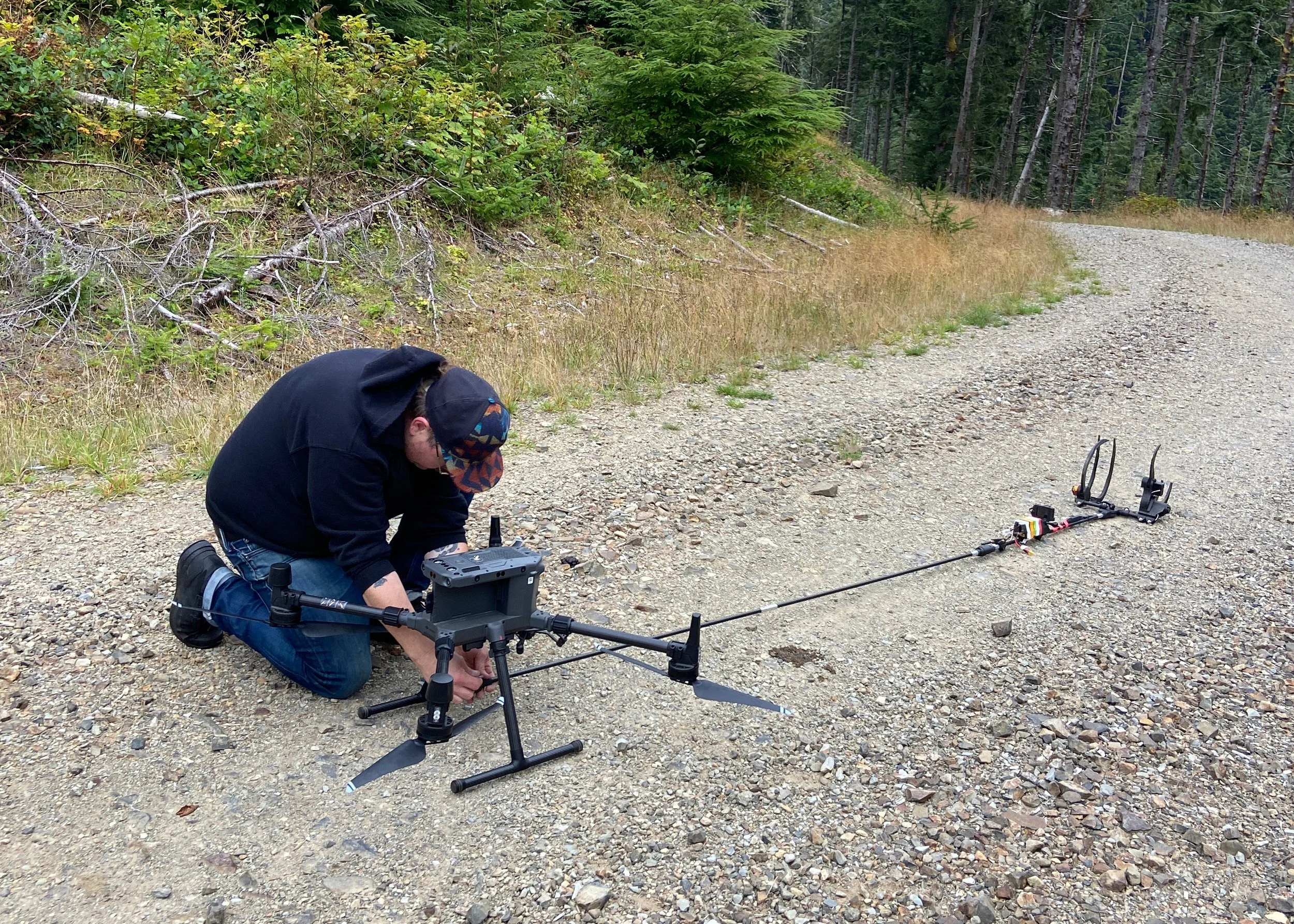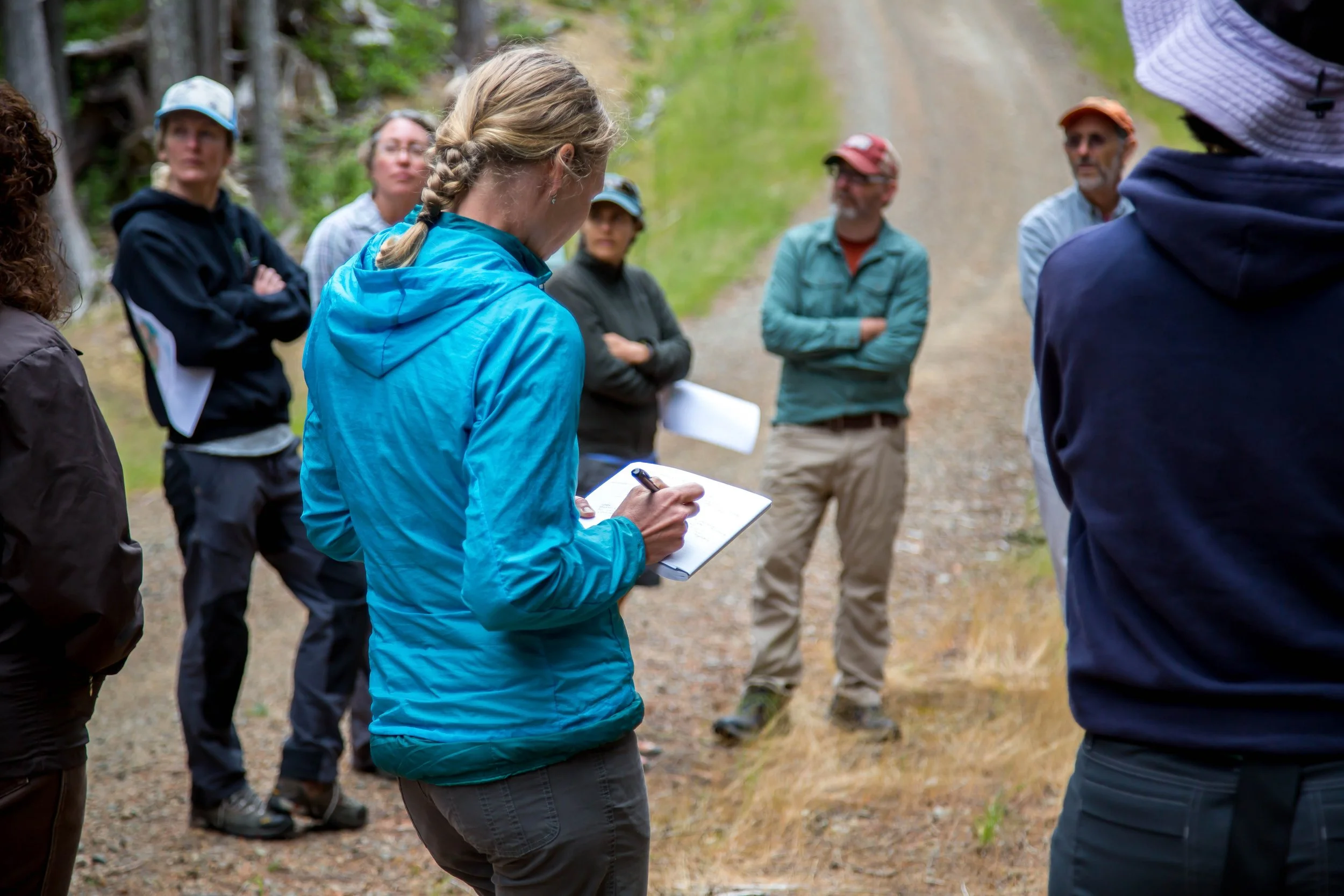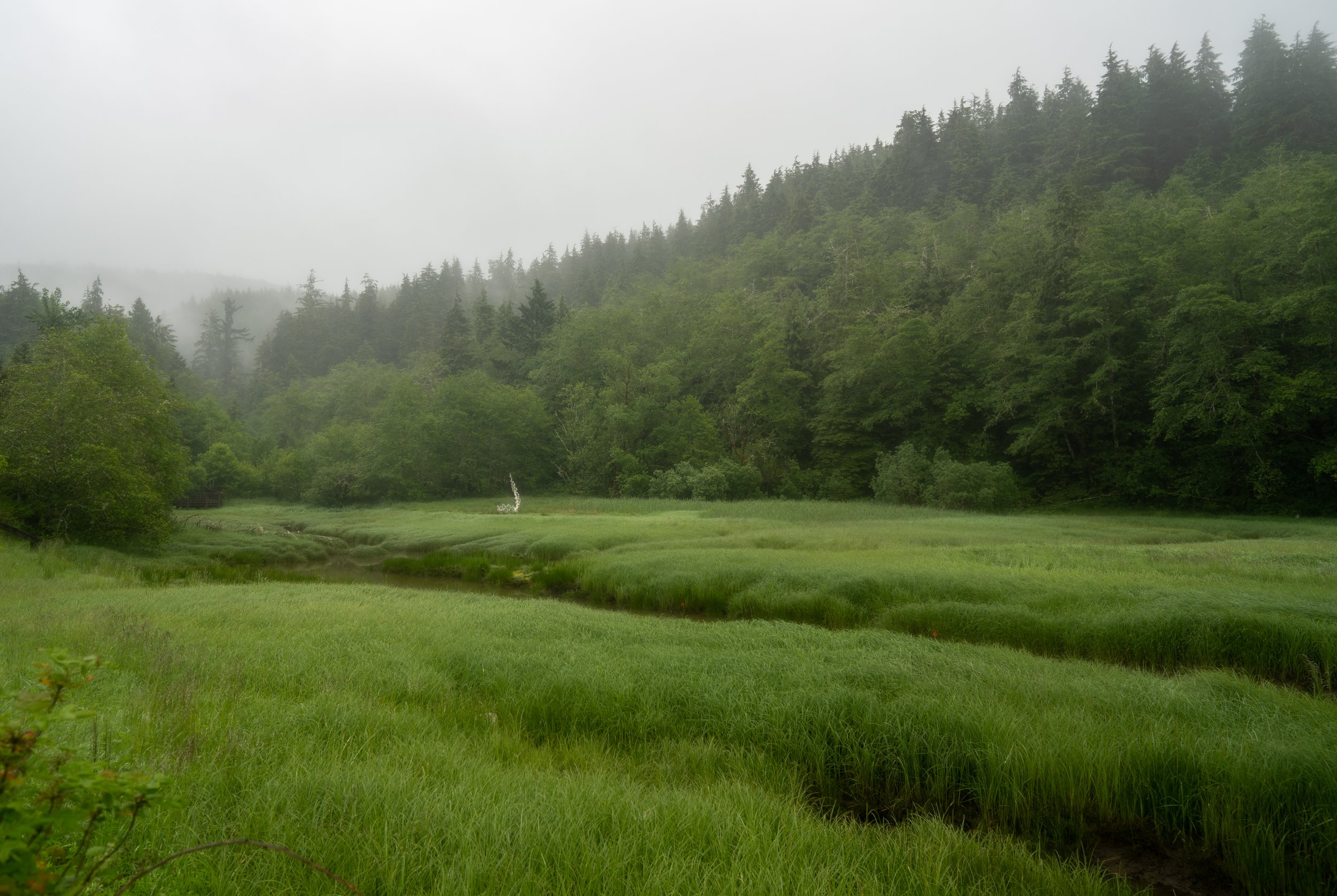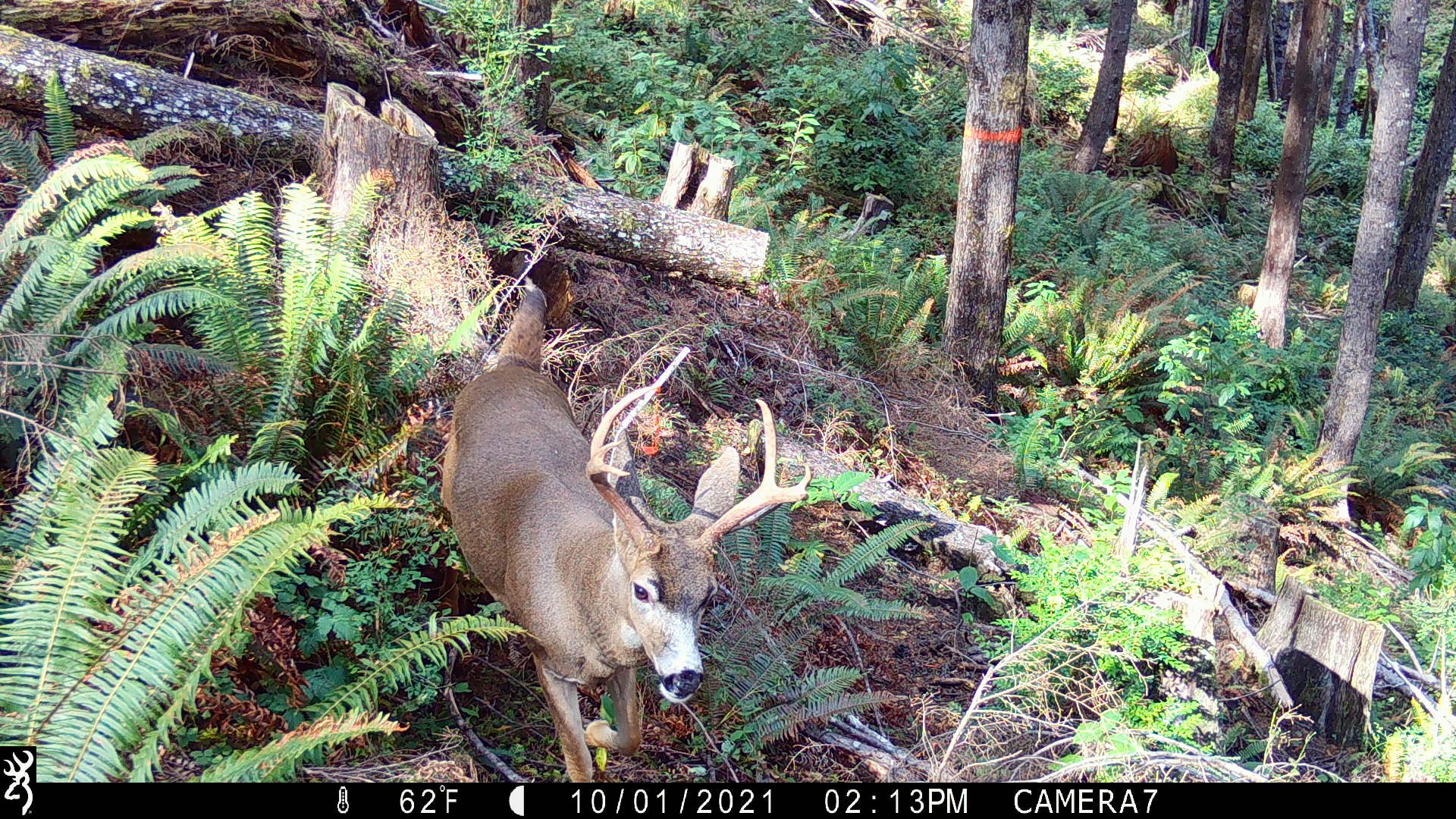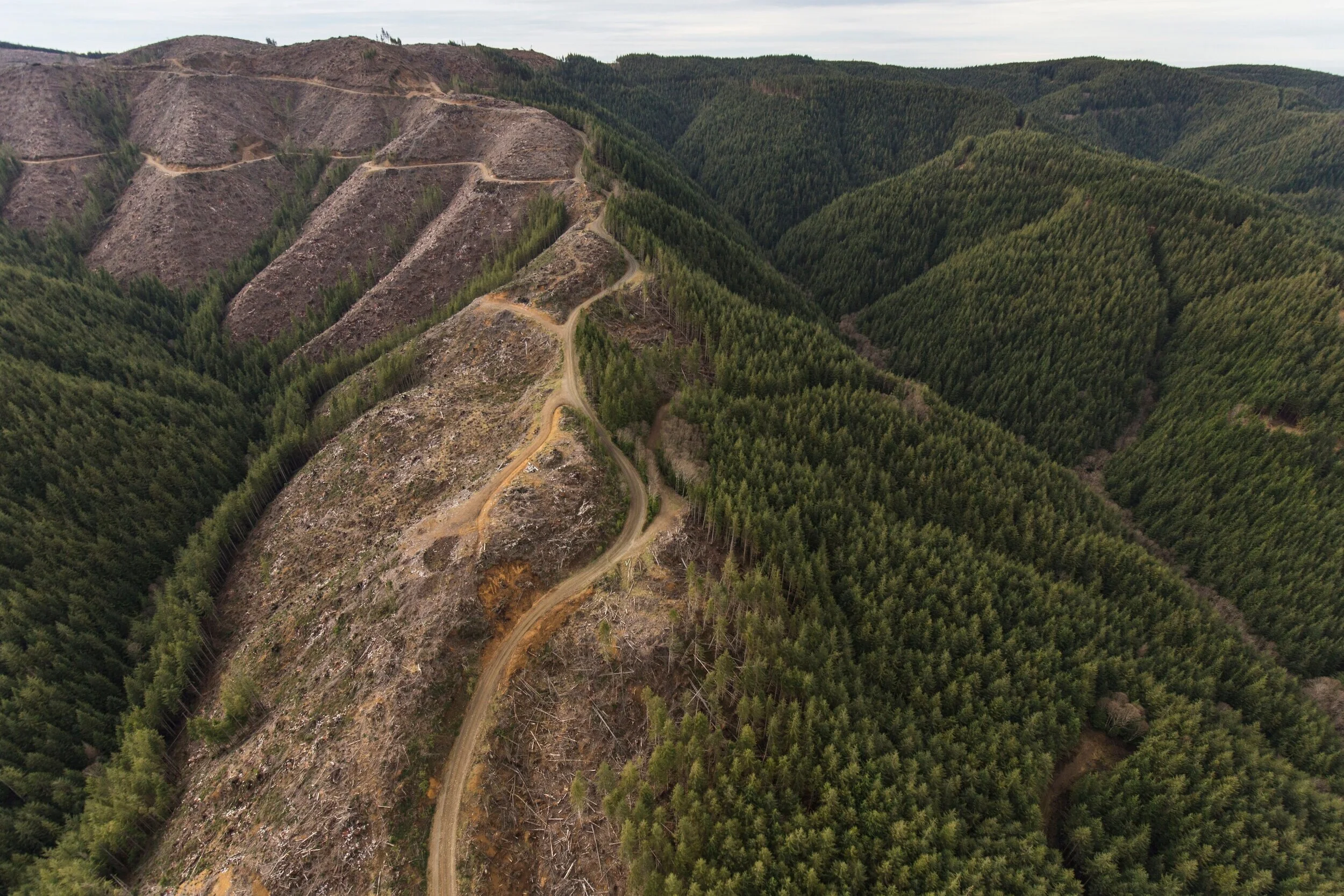Justin Urresti is the Conservation Forester for TNC’s Western Washington forests, covering the Hoh, Clearwater, and Ellsworth ecosystems.
TNC WA’s conservation forester, Justin Urresti. ©Hannah Letinich
Over the last three decades, Justin has gained diverse experience as an ecosystems earth scientist and forester living and working in the forests of the Northern Rockies of Montana and Idaho, the Mojave Desert and Joshua Tree preserve in southern California, the rain forest and waters of southeast Alaska and the Bering strait, and the west side Olympic peninsula temperate rain forest.
Q: What does your work look like on a day-to-day basis?
Justin: I’m happy to say my work on a daily basis can be highly variable. I have days where I spend the morning writing grant applications to help bolster funding for our west-side Olympic peninsula conservation work. Then meet a local contractor in the field that afternoon to design and eventually implement a road decommissioning project that will directly improve the riparian condition of TNC lands contiguous to the Hoh River. From writing technical reports to putting up interpretive signs and picking up litter at our local dispersed campsites, I feel fortunate to be able to play a diverse role in maintaining and hopefully improving the overall condition and health of TNC lands in western Washington.
Q: You have an extensive amount of experience in earth and soil science. What drew you to conservation?
Justin: Honestly, at least initially, I think it was the simple fact that I could potentially have a career working outside in the forests and rangelands of the Northern Rocky Mountains. I was very fortunate to spend the next two-plus decades in that capacity, and I eventually specialized in soil science and applied geomorphology in forested ecosystems. This work highlighted how ecosystems really are systems and everything is related. Soils many times are that centralized resource, that literally touch and influence the bedrock, water, and vegetation of these systems, and I try to bring that same connectivity to my work as a conservation forester for TNC.
Q: How do you see climate change impacting the land and people around where you're based and work out of?
Justin Urresti describing TNC’s forestry work in the western part of the state. ©Hannah Letinich
Justin: Because many of the west-side Olympic peninsula's large river systems are glacially fed, it is imperative that we design current and future aquatic restoration projects in a way that will effectively account for vastly increased flows well into the future. Ecological changes are coming, and I think it is important to recognize, monitor, and implement measures that account for this change within all our aquatic restoration projects now and into the future.
Q: What do you hope to achieve in Western Washington?
Within both the Clearwater and Hoh forest reserves specifically, I am hoping to continue the comprehensive and forward-looking conservation work already established by my predecessors, and to be an effective and respectable conservation steward of TNC lands every day.
Q: How can someone reading this help support your work?
Take the time to “unplug” and go on a forest walk, or a river walk, or a walk around your local park, and maybe take a second to appreciate the connection we all have with nature, its importance, and its vulnerabilities, and how your actions potentially affect these places, both good and bad. Even if it is just picking up a gum wrapper off the ground, much like the active restoration I can implement on TNC lands, it’s all related and it all counts. No matter the scale.
A foggy road in La Push, WA. ©Hannah Letinich





